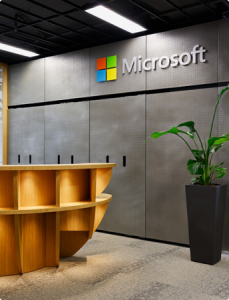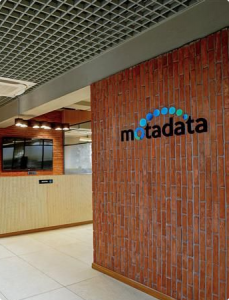Microsoft Azure: Everything You Ever Wanted to Know
At Claritus Consulting, we are a Microsoft Partner with over two decades of hands-on experience in Microsoft Azure. Our teams have helped enterprises modernize legacy systems, migrate workloads, and build scalable, secure cloud-native solutions on Microsoft Azure, making Azure adoption practical, cost-effective, and business-aligned.
Microsoft Azure is a computing service which is broad, cloud-based and ever-expanding in nature. It is made available to government agencies, developers, businesses or anyone who intends to start an enterprise or build an app on the internet.
However, none of them will require to install and manage either hardware or server software.
This cloud computing platform and online portal permits you to acquire and command resources as well as cloud services offered by Microsoft.
You can store your data and transform it with respect to your needs. An active internet connection together with the ability to link with the Azure portal are the only prerequisites.
Microsoft Azure comprises of more than 600 services but generally speaking this web-based platform is used to build, test, control and deploy applications and services.
It hosts an extensive range of Microsoft’s software as a service (SaaS), infrastructure as a service (IaaS) and platform as a service (PaaS) product. You can avail of three core areas of service functionality, which are, cloud services, app services and virtual machines.
Introduction to Microsoft Azure
Launched on February 1, 2010, it’s free to start and adheres to a pay-per-use model which means that you pay only for the service that you utilize.
It’s noteworthy that 80% of the Fortune 500 organizations make use of its services for their cloud computing requirements.
Multiple programming languages including Python, Java, PHP, Node.js and PowerShell are supported by the platform.
There are 42 data centres of Azure across the world which is the maximum number for any cloud platform, and this again is an advantage. In fact, there are plans afoot to add 12 more shortly.
It offers a terrific opportunity for developers due to its huge array of apps and services.
Azure has been the fastest growing business segment for Microsoft in the last few years and has outperformed both Windows and Office with regard to revenue.
Various Microsoft Azure Services
Cloud Service
With this service you can build scalable applications in cloud. Post deployment, Azure takes care of everything else like load balancing and provisioning etc.
Virtual Machine
With this one you can make a virtual machine in Linux, Windows or any other configuration promptly and instantly.
Service Fabric
You can make the process of building a microservice which is an application containing other smaller applications very easy and highly streamlined with this service.
Functions
With this one you may build applications in any programming language. The advantage is that Azure takes care of hardware requirements while applications are built. You only need to provide the code.
Virtual Network
This permits you to have Azure services, link-up and network with each other securely and privately.
Azure CDN
An acronym for Content Delivery Network, Azure CDN is used to deliver and transfer content to anyone around the world.
It makes use of a high bandwidth and a network of servers tactically placed around the world for end users to access data instantaneously.
Express Route
This one is for connecting your native or on-site network by a private connection to Microsoft cloud or any other service that you desire.
So the sole link that will occur here is between your on-premises network and the service that you opted for.
Disk Storage
This service lets you choose between your Hard Disk Drive and Solid-State Drive as storage alternative together with the virtual machine.
Blob Storage
This special service is to store a humongous amount of data which are not structured, including text and binary data as well.
Queue Storage
You utilize this service for storing a large number of messages. The messages can be accessed from anywhere across the globe by authenticated calls using HTTP or HTTPS. It may hold millions of messages.
File Storage
You can create a file with Azure File Storage Service and share it in the cloud. Based on Server Message Block protocol it allows you to access files either remotely or on premises.
It has to take place through encrypted communications via API.
Apart from all the above-mentioned services the platform also offers, Azure Kubernetes Services, Azure Blockchain Services, Azure IoT Suite, Azure Media Services, and Azure Stack Hub etc. at your disposal.










